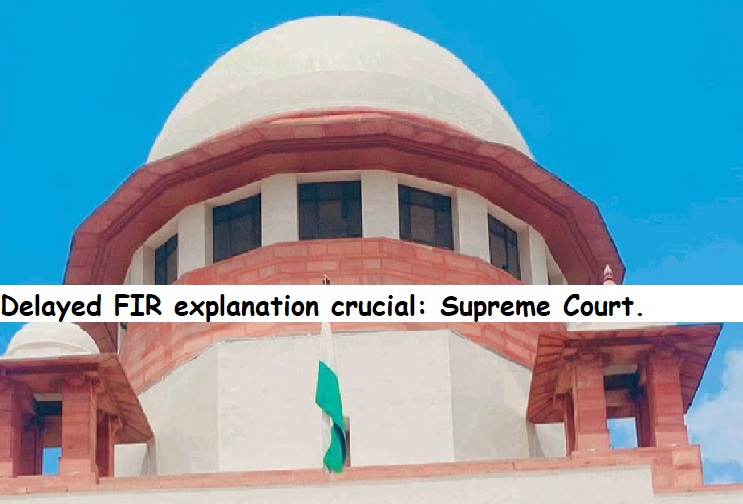


In a recent judicial decision, the Supreme Court rendered a verdict acquitting an individual who had been previously convicted by the Madras High Court under Section 304 of the Indian Penal Code (IPC). The essence of the Supreme Court's ruling hinged on its assessment that the prosecution had failed to establish the accused's guilt beyond a reasonable doubt. The Court, composed of Justices BR Gavai, Dipankar Datta, and Aravind Kumar, underscored that the accused was entitled to acquittal based on the dictates of justice as discerned from the circumstances surrounding the case.
The bench expounded on the legal principle that a conviction can be sustained on partial evidence, provided that the evidence is credible. However, the Court contended that in this particular case, the prosecution's version of events was deemed wholly unreliable. The judgment articulated, "There seems to be no legal bar in convicting an accused resting on part of the evidence, which is primarily found to be credible and acceptable; however, where the evidence is so inseparable that any attempt to separate them would destroy the substratum on which the prosecution version is founded, then this Court would be within its legal limits to discard the evidence in its entirety."
The case emanated from a dispute between the appellant and the victim over wage demands, culminating in a fatal altercation. The appellant was accused of wielding a rubber stick obtained from a nearby tea stall to assault the victim, resulting in the latter's demise. The High Court, while acknowledging the absence of premeditation or intention on the part of the appellant to commit murder, found him guilty under Section 304, Part II of the IPC, and sentenced him to five years of rigorous imprisonment.
The Supreme Court, upon scrutinizing the evidence, arrived at the conclusion that the circumstances more inclined towards the inference that the victim, under the influence of alcohol, fell from a tree, sustaining a fatal head injury. The Court highlighted the initial lack of seriousness attributed to the injuries, as evidenced by the absence of immediate medical attention or police intervention. Subsequently, the Court postulated that the appellant may have been framed as the situation deteriorated, underscoring the unreliable nature of the prosecution's narrative.
The apex court noted the absence of critical witnesses, specifically Ponnaian and Velukutti, who were present at the tea stall during the alleged incident. The prosecution's failure to present their testimonies or provide a satisfactory explanation for their non-appearance led the Court to invoke section 114(g) of the Evidence Act. This section allows the court to draw adverse inferences when material witnesses are withheld.
Addressing the delayed filing of the First Information Report (FIR), the Court acknowledged the general principle that mere delay does not automatically discredit the prosecution's case. However, it emphasized that an unexplained delay, coupled with other circumstances, could cast doubt on the credibility of the prosecution. In this case, the Court found no satisfactory explanation for the belated registration of the FIR, further diminishing the prosecution's standing.
Regarding the crucial aspect of the victim's head injury, the Court underscored the lack of medical documents to corroborate that the injury resulted from the alleged assault rather than the fall from the tree. This deficiency in evidentiary support further weakened the prosecution's case.
The Court also dismissed the significance of the appellant's alleged abscondence for over three years, asserting that such behavior does not inherently establish guilt. Abscondence, the Court noted, might be a natural reaction for an individual anticipating arrest following the filing of an FIR.
In concluding its analysis, the Supreme Court emphasized the need for a meticulous examination of the evidence, particularly in cases where material witnesses are withheld, and the prosecution's version appears suspect. The Court, as the final arbiter, asserted its duty to sift through the evidence, separating truth from falsehood. It ultimately ruled that, given the circumstances, the appellant's false implication could not be entirely ruled out, thereby warranting his acquittal.
TAGS: Legal Bar Conviction Substratum Fatal Altercation Wage Dispute Rubber Stick Assault Demise Intention